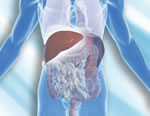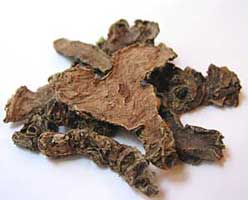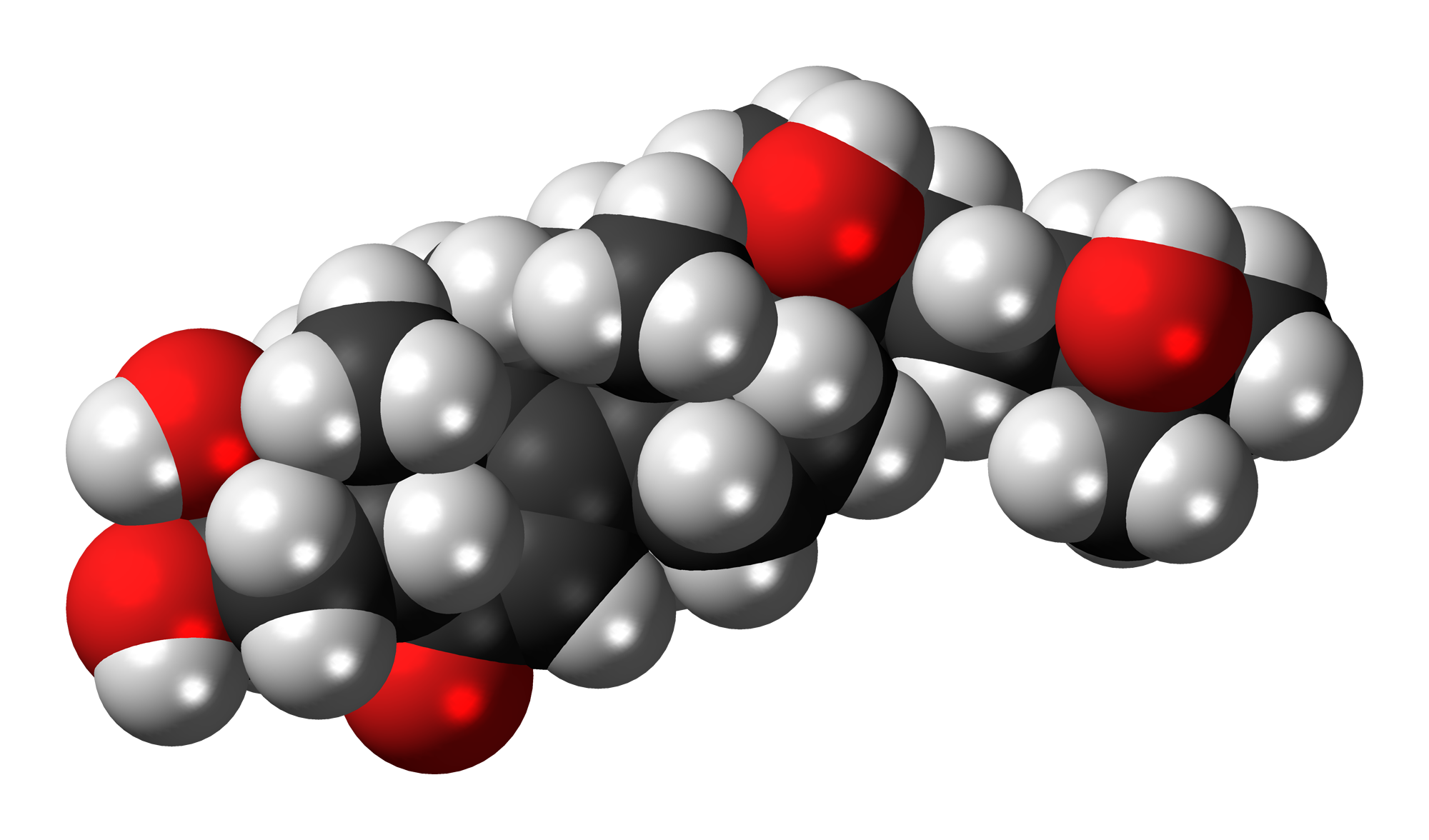
By Gene Bruno, MS, MHS
Smart SupplementationTM is a free series of educational literature created by Huntington College of Health Sciences (HCHS) as a public service....
By Gene Bruno, MS, MHS – Dean of Academics, Huntington College of Health Sciences
 Smart SupplementationTM is a free series of educational literature created by Huntington College of Health Sciences (HCHS) as a public service. Although copyrighted, it may be freely photocopied and distributed, but may not be altered in any way. Smart SupplementationTM is not intended as medical advice. For diagnosis and treatment of any medical condition, consult your physician.
Smart SupplementationTM is a free series of educational literature created by Huntington College of Health Sciences (HCHS) as a public service. Although copyrighted, it may be freely photocopied and distributed, but may not be altered in any way. Smart SupplementationTM is not intended as medical advice. For diagnosis and treatment of any medical condition, consult your physician.
For better of for worse (depending upon your viewpoint), as of January 2005 androgen or “andro” products are no longer available. For some athletes, this represents a significant loss in their dietary supplement arsenal. After all, whatever else you might say about andro it did have some established benefits:
Some androgens increased testosterone levels
Some androgens increased performance
Some androgens increased strength
Some androgens promoted muscle growth
So now that andro is gone, what viable alternatives currently exist? Following is a discussion of dietary supplement ingredients that offer similar benefits to those of andro, or perhaps better.
LJ100 is a standardized herbal extract of Eurycoma longifolia; also known as Tongkat Ali in Malaysia where it is used traditionally for sexual potency as well as for sports enhancement.(1) At least one of its mechanisms of action as a sexual enhancer is that it results in elevated testosterone levels. This has been demonstrated in animal research;(2) and more importantly in human research where male subjects under 50 years old experienced an average testosterone increase of approximately 91% with 100 mg of LJ100TM.(3) This may be due to a reduction in sex hormone binding globulin (SHBG)(4) which would otherwise make free testosterone unavailable. In any case, human research has demonstrated that LJ100TM has a definite anabolic effect. In a pilot study by Hamzah and Yusof(5), 100 mg of an extract of Eurycoma longifolia was shown to increase fat free mass, reduce fat mass, increase muscle strength and size. Not a bad potential substitute for andro.
In Ayurveda, the herbal medicine Tribulus terrestris has been used in treating genito-urinary troubles, and has been prescribed in treating impotence and as a general tonic for centuries. Of greater significance to athletes are the studies where the standardized extracts of Tribulus terrestris were found to modestly increase testosterone. Tests on healthy men demonstrated that a five day treatment with three tablets of the standardized extract (250 mg each) per day significantly increased levels of testosterone by approximately 30%.(6, 7) In another study, a group of men suffering from a range of reproductive disorders were treated with the standardized extract of Tribulus terrestris. The results confirmed previous observations, and the treatment increased testosterone levels and improved libido without producing side effects.(8, 9) Another nice potential substitute for andro.
 Rhodiola Rosea Root Extract
Rhodiola Rosea Root ExtractA wide array of human health benefits related to mental health and physical performance has been clinically demonstrated with Rhodiola rosea root extract. Among these benefits is the ability to enhance athletic performance. As a matter of fact, Soviet/Russian sport professionals have used R. rosea for decades with very consistent results in enhancing physical performance. It gives competitors a pronounced positive effect in both physical and mental stamina as well as accelerating recovery time without anabolic steroids.(10, 11, 12) Rhodiola rosea support this by mobilizing, sustaining, and recovering energy reserves in muscle tissue. Studies on R.rosea show that this herb activates a unique biochemical adaptation to the metabolic loads of extreme physical stress. (13, 14, 15, 16, 17, 18) Once again, Rhodiola has certain properties that can nicely substitute for the performance enhancing aspects of andro.
Myostatin (myo - muscle, statin - stop) is a substance produced by the body, whose job it is down regulate skeletal muscle mass (inhibit muscle growth or regeneration).(19, 20) “Fraction C” from marine plants of the Cystoseira species helps prevent myostatin from attaching to its receptor. When this happens, myostatin can’t inhibit muscle growth. The result may be greater increases in muscle mass.
In fact, this was demonstrated in a placebo- controlled, double-blind study conducted in Russia in which the effects of whey protein alone were compared to whey protein + Fraction C, on muscle protein synthesis.(21) Eighteen athletes (wrestlers) were divided into two groups and ingested either 40 grams of whey protein or (40) grams of whey protein + Fraction C twice per day for 60 days. All athletes were placed on a standardized diet and continued their normal rigorous training. Before and after supplementation, muscle biopsies were obtained from both legs of each subject. Using stable isotope methodology, rates of muscle protein synthesis were compared. The results were that whey protein + Fraction C lead to 50% greater anabolic muscle growth than whey protein alone.
If the previously mentioned herbs are good, what happens when they are combined together? This was the subject of an open-label pilot study by Ziegenfuss et al,(22) in which subjects took a combination of the aforementioned herbs together with the herbs Ajuga turkestanica and Rhaponticum carthamoides Root Extract for 6-8 weeks in combination with intense resistance training. The results were that the herbal combination enhanced adaptations to intense resistance exercise, especially the acquisition of strength (increased up to 58%), while posing no obvious health risks. Apparently this combination provides some of the same strength-enhancing benefits of andro.
Nitric oxide helps regulate and direct muscle physiology by stimulating vasodilatation, which results in increased blood flow to working muscles. In turn, this leads to increased oxygen transport, delivery of nutrients to skeletal muscle, a reduction in blood pressure, helping to promote the repair of muscle fibers, and improvements in lactic acid clearance. So how does one boost nitric oxide levels? The amino acid l-arginine is the answer. The main importance of l-arginine is considered to be its role as a precursor (building material) for the synthesis of nitric oxide.(23) Supplemental sources of l-arginine are thought to augment nitric oxide production(24), with the result being a measurable increase in blood flow(25) (i.e., vasodilatation). The idea is that the beneficial results of this vasodilatation for athletes include increased oxygen transport, delivery of nutrients to skeletal muscle, muscle fiber repair, and improved endurance.
Although andro products are no longer available, athletes still have a significant number of viable dietary supplement options to replace them. These options may provide similar or better benefits as andro.
1 Kilham C. Hot Plants: Nature’s Proven Sex Boosters for Men and Women. New York:St. Martin’s Griffin; 2004:7- 29. 2 Kwan TK, Saad JM, Farizaturradiah O, Koh BH. The Effect of Eurycoma longifolia on Rat and Human Testicular Steroidogenesis. Posiding Konvensyen Kebangsaan Tumbuhan Ubatan. FRIM 1995; m/s 201-204. 3 LJ100 Saliva Testosterone Test. HP Ingredients unpublished report. Copyright 2002-2004. 4 Tambi MIM, Othman S, Saad JM. Water-Soluble Extract of LJ100TM as a Potential Natural Energizer for Healthy Aging Men. HP Ingredients unpublished report. Copyright 2002-2004. 5 Hamzah S, Yusof A. The ergogenic effects of Eurycoma longifolia Jack: a pilot study. Br J Sports Med 2003; 37:464-470, abstract #007. 6 Wright J. Muscle and Fitness (1996) September: pp. 140- 142, 224 7 Milanov et al. Farmatsiya 1987; 37(6):142 8 Wright J. Muscle and Fitness 1996; September:140-142, 224 9 Milanov et al. Farmatsiya 1987; 37(6):142 10 Azizov AP. Effects of Eleutherococcus, elton, Leuzea, and leveton on the blood coagulation system during training in athletes. Exp Clin Pharm 1997; 60:58–60. 11 Azizov AP, Seifulla RD, Ankudinova IA, et al. The effect of the antioxidants elton and leveton on the physical work capacity of athletes. Exp Clin Pharm 1998; 61(1):60– 62. 12 Seifulla RD. Sport Pharmacology. Manual. Moscow: SportPharma Publishing; 1999:90p 13 Seifulla RD. Sport Pharmacology. Manual. Moscow: SportPharma Publishing; 1999:90p 14 Adamchuk LV. Effects of Rhodiola rosea extract on the process of energetic recovery of rat under intense muscular workload. Ph D. Dissertation. Tomsk State University and Medical Institute, Tomsk, Russia; 1969:12 15 Adamchuk LV and Salnik BU. Effect of Rhodiola rosea extract and piridrol on metabolism of rats under high muscular load. Proceedings Institute of Cytology of Russian Academy of Science; Leningrad; 1971:89–92. 16 Danbueva EA. Effect of stimulators of the central nervous system on lipid metabolism at different muscular workloads. Ph D. Dissertation. Tomsk State Medical Institute.Tomsk, Russia; 1968 17 Salnik BU. Effect of several stimulators on central nervous system energy metabolism during muscular workload. Dissertation. Tomsk, Russia: Tomsk State Medical Institute; 1970:30p. 18 Saratikov AS, Krasnov E.A. Rhodiola rosea is a valuable medicinal plant. Tomsk, Russia: Tomsk State University Press; 1987:250p 19. Lee SJ; McPherron AC. Regulation of myostatin activity and muscle growth. Proceedings of the National Academy of Sciences of the United States of America 2001; 98(16):9306-11. 20. Taylor WE, et al. Myostatin inhibits cell proliferation and protein synthesis in C2C12 muscle cells. American journal of physiology 2001; 280(2):E221-8. 21. Abidov MT, del Rio MJ, Ramazanov Z. Sulfated polysaccharides derived from marine plant Cystoseira canariensis possess specific affinity to human plasma myostatin and stimulates muscle protein synthesis: placebo controlled clinical study. Center of Modern Medicine, 46 Molodogvardeyskaya. Moscow-121351, Russia. 19 pages. 22 Ziegenfuss TN, Mendel RW, Hofheins JE. Effect of AnabolXTM on Training Adaptations – An Open-Label Pilot Study. Unpublished. Accessed on March 22, 2005 from http://www.pinnaclebody.com/images/product_images/uplo ad_000061.doc. 23 Tapiero H, Mathe G, Couvreur P, et al. I. Arginine. Biomedicine & pharmacotherapy = Biomedecine & pharmacotherapie (France) 2002; 56(9):439-45. 24 Nonami Y. The role of nitric oxide in cardiac surgery. Surgery today (JAPAN) 1997; 27(7):583-92. 25 Cheng JW, Baldwin SN, Balwin SN. L-arginine in the management of cardiovascular diseases. Annals of pharmacotherapy 2001; 35(6):755-64.

By Gene Bruno, MS, MHS
Smart SupplementationTM is a free series of educational literature created by Huntington College of Health Sciences (HCHS) as a public service....

By Gene Bruno, MS, MHS – Dean of Academics, Huntington College of Health Sciences
Smart SupplementationTM is a free series of educational literature created by...